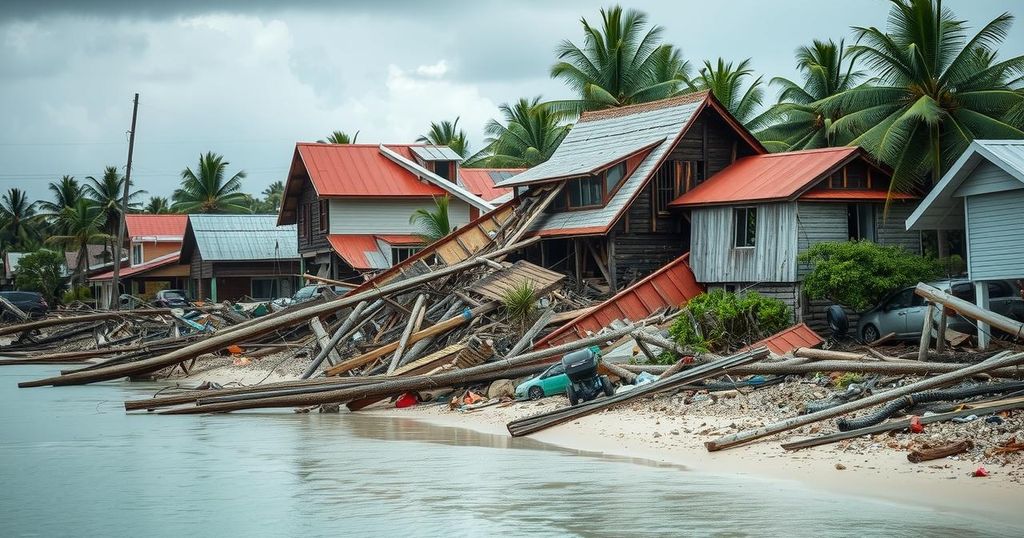Cyclone Chido Devastates Mayotte, Hundreds Feared Dead

Cyclone Chido has wrought havoc in Mayotte, with authorities estimating hundreds, potentially thousands of fatalities. Rescue operations are ongoing, amidst significant destruction of infrastructure and housing. Initial casualty reports indicate over 250 injuries and at least 11 confirmed deaths. The cyclone has raised concerns regarding future humanitarian crises in this impoverished French territory as assessments continue.
The French territory of Mayotte has been devastated by Cyclone Chido, with officials estimating that the death toll could reach several hundred, possibly into the thousands. Mayotte’s Prefect, François-Xavier Bieuville, emphasized the cyclone’s severity, describing it as the worst in 90 years. Rescue efforts are underway, with France dispatching teams and supplies to the region, which has experienced significant destruction, particularly in impoverished neighborhoods. Initial reports confirmed at least 11 deaths and over 250 injuries, though officials predict these numbers will rise substantially as assessments continue. The cyclone struck with winds exceeding 220 kilometers per hour, wreaking havoc across the island and damaging critical infrastructure.
Cyclone Chido traversed the southwestern Indian Ocean, directly impacting Mayotte, France’s poorest overseas territory, which has a population of over 300,000. The cyclone caused widespread destruction, particularly in slums comprised of informal metal shacks, complicating rescue and recovery efforts. The region is prone to such disasters, experiencing severe cyclones in recent years that have led to extensive humanitarian crises. The intersecting challenges of climate change and poverty exacerbate the vulnerabilities of such territories, calling for immediate international assistance and support.
In conclusion, Cyclone Chido has inflicted catastrophic damage on Mayotte, with a troubling death toll expected to rise as rescue efforts continue. The region’s socioeconomic conditions have heightened the impact of this disaster, necessitating urgent aid and intervention. Historical patterns indicate a rising frequency of intense cyclones due to climate change, underscoring the need for long-term strategies to bolster infrastructure and community resilience against future environmental challenges.
Original Source: www.cbsnews.com






